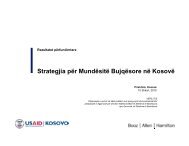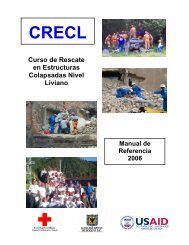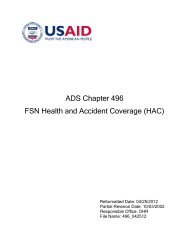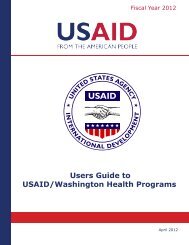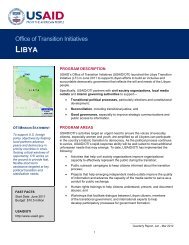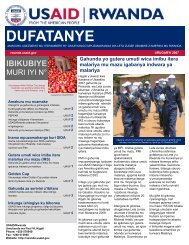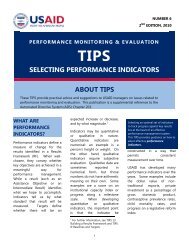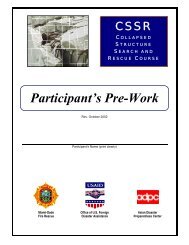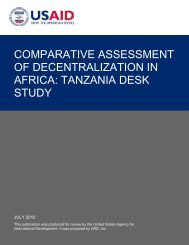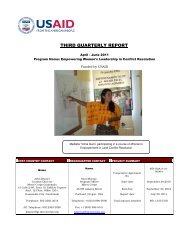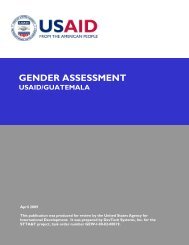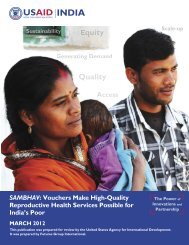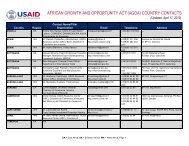Pre-Departure Orientation Manual - US Agency for International ...
Pre-Departure Orientation Manual - US Agency for International ...
Pre-Departure Orientation Manual - US Agency for International ...
Create successful ePaper yourself
Turn your PDF publications into a flip-book with our unique Google optimized e-Paper software.
PARTICIPANT TRAINING<br />
06/14/2012 New Edition<br />
Training, or what we consider human capacity development, is a key component of most <strong>US</strong>AID<br />
projects and is essential to assuring program impact and sustainability.<br />
Most participant training programs are short-term, focusing on technical training, study visits, leadership<br />
development or public diplomacy. There are also long-term programs, including academic degree<br />
studies, non-degree research and leadership programs held in the United States, in the participant’s<br />
home country or in a third country.<br />
During 2009, <strong>US</strong>AID provided training to 2,350,946 individuals, including 3,684 participating in programs<br />
in the U.S. <strong>US</strong>AID frequently selects participants from organizations which partner in a <strong>US</strong>AID Mission<br />
development activity. In this case, training may be one element of a coordinated human and institutional<br />
capacity development program which focuses on increased output or productivity in the partner<br />
organization.<br />
All training helps individuals acquire new skills, knowledge and attitudes critical to achieving their<br />
country’s development goals. Training contributes to building self-reliant, productive societies, through<br />
developing human resources.<br />
SELECTION<br />
<strong>US</strong>AID chose you because of your qualifications and potential as a leader who can help improve the<br />
per<strong>for</strong>mance of your institution. You are a citizen or legal resident of your country; you are proficient in<br />
the language of the country where you will receive training; you are in good health and you are able to<br />
adjust to a <strong>for</strong>eign culture while representing your own. Importantly, you represent a commitment to<br />
development and a belief that economic, political and social advances are key elements <strong>for</strong> a prosperous<br />
future.<br />
Your selection was also contingent upon your agreement to return home immediately and apply your<br />
new knowledge and skills to help solve development challenges in your own community and country.<br />
Even at this early stage be<strong>for</strong>e you begin your program, we ask that you envision and prepare <strong>for</strong> your<br />
return home equipped with new or enhanced knowledge and skills. We hope you will develop a strategy<br />
now and nurture the relationships that will enable you to make full and productive use of what you will<br />
gain from the program.<br />
<strong>US</strong>AID participant training programs can consist of long-term academic degree programs, short or longterm<br />
non-degree technical courses in academic or in other settings, seminars, workshops, conferences,<br />
on-the-job learning experiences, observational study tours, or distance learning exercises or<br />
interventions. Most of the in<strong>for</strong>mation in this document applies equally to long term, degree-earning<br />
programs in U.S. universities and short-term technical training programs.<br />
7



